Army vets Low T risks and benefits from Testosterone therapy
Low testosterone (Low T) is a common condition that affects men, and army veterans are at an increased risk for this condition. Army Vets Low T risks can cause a variety of symptoms, including fatigue, decreased libido, and decreased muscle mass. Testosterone replacement therapy (TRT) is a treatment option for men with Low T, and it has been shown to be effective in improving symptoms and overall quality of life. In this blog, we will explore why army veterans are at risk for Low T and how TRT can help improve their health and wellbeing.Why Army Vets Low T Risks lead to Testosterone Therapy consideration
Army veterans are at an increased risk for Low T due to a variety of factors. One of the main reasons is exposure to stress and trauma during combat. The stress and trauma of combat can affect the hypothalamic-pituitary-gonadal (HPG) axis, which regulates the production of testosterone in the body. When the HPG axis is disrupted, it can lead to decreased testosterone levels.In addition to stress and trauma, other factors that can contribute to Low T in army veterans include:- Age: As men age, their testosterone levels naturally decrease peaking at 19 and declining 1-2% in the best of conditions. Army veterans who are older may have accelerated their decline through stressful service.
- Injuries: Army veterans who have suffered injuries, particularly to the testicles or TBI (traumatic brain injury), may experience decreased testosterone production.
- Medications: Certain medications, such as opioids and steroids, can decrease testosterone production.
- Obesity: Obesity is a risk factor for Low T, and many army veterans struggle with weight gain after leaving the military.
- Sleep apnea: Sleep apnea is common among army veterans, and it has been linked to decreased testosterone production.
Symptoms of Low T in Army Veterans
The symptoms of Low T in army veterans can vary depending on the severity of the condition. Some common Low T symptoms include that patients on TRT programs see improvements in:- Fatigue: Low T can cause fatigue and a lack of energy.
- Decreased libido: Army veterans with Low T may experience a decrease in sex drive.
- Decreased muscle mass: Low T can cause a loss of muscle mass and strength.
- Weight gain: Low T can cause weight gain, particularly around the midsection.
- Mood changes: Low T can cause mood swings, irritability, and depression.
- Erectile dysfunction: Low T can contribute to erectile dysfunction.
Benefits of Testosterone Replacement Therapy
TRT can be an effective treatment option for army veterans with Low T. Some of the potential benefits of TRT include:- Increased energy: TRT can help boost energy levels, reducing fatigue and improving overall quality of life.
- Improved libido: TRT can help increase sex drive and improve sexual function.
- Increased muscle mass: TRT can help increase muscle mass and strength.
- Weight loss: TRT can help promote weight loss, particularly around the midsection.
- Improved mood: TRT can help improve mood and reduce symptoms of depression and irritability.
- Improved bone density: TRT can help increase bone density, reducing the risk of osteoporosis.
Risks and Side Effects of Testosterone Replacement Therapy
While TRT can be an effective treatment option, it is not without risks and side effects. Some potential risks and side effects include:- Increased risk of blood clots: TRT can increase the risk of blood clots, which can be dangerous. Make sure your provider tests for and reviews Hematocrit levels.
- Acne: TRT can cause acne and other skin reactions.
- Breast tissue growth: TRT can cause breast tissue to grow in some men if Estradiol levels and the ratio of Total Testosterone : Estradiol is left un checked and not managed.
- Sleep apnea: TRT can worsen sleep apnea in some men
Army vets Low T risks and benefits from Testosterone therapy
Hormone Therapeutics March 21st, 2023
Posted In: Low T Info, Testosterone Therapy
Tags: benefits of testosterone, benefits to your body, depression, erectile dysfunction, fatigue, hormone replacement therapy, low t, testosterone levels, testosterone therapy
Here’s What You Should Know on How Testosterone Replacement Therapy Works
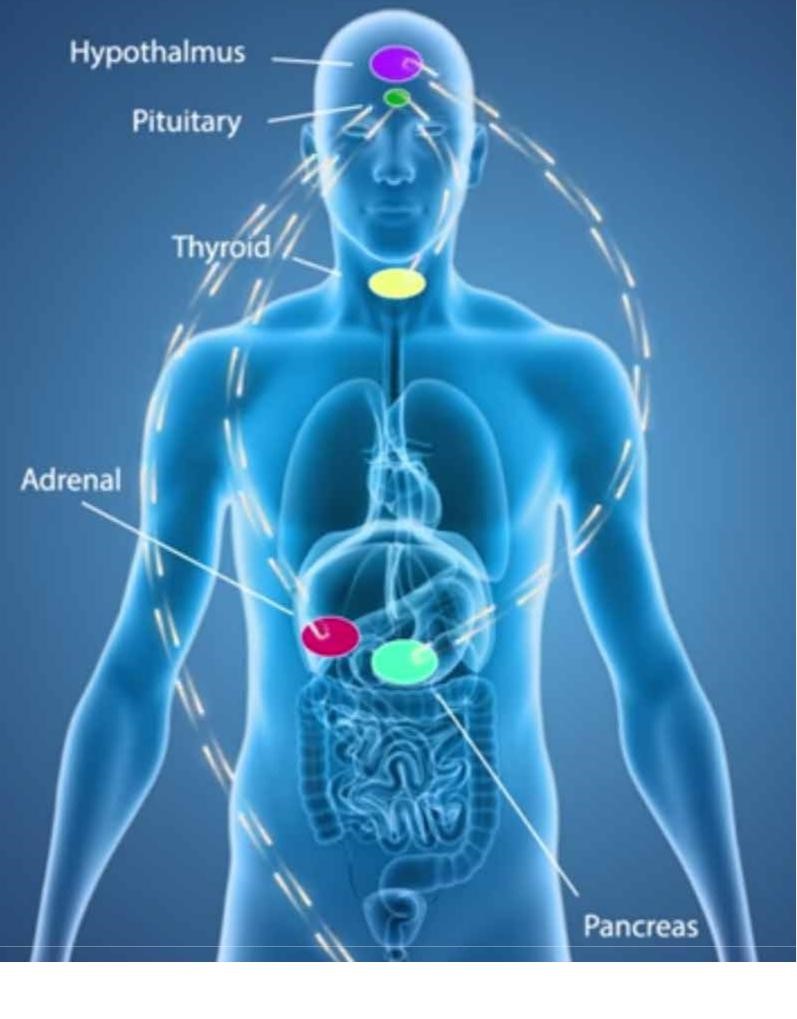 If you’ve been reading Hormone Therapeutics blogs and testosterone replacement therapy eBooks, you’re probably already completely aware of just how important testosterone is to male health. It boosts mental energy, physical energy, alertness, strength, sexual vitality, and just generally helps us live our lives better.
If you’ve been reading Hormone Therapeutics blogs and testosterone replacement therapy eBooks, you’re probably already completely aware of just how important testosterone is to male health. It boosts mental energy, physical energy, alertness, strength, sexual vitality, and just generally helps us live our lives better.
You might be wondering just how exactly it provides all these benefits, though. What’s the actual mechanism? What, precisely, does testosterone do?
The fact is, testosterone does all sorts of beneficial things in just about every part of the body. It’s a key hormone to maintaining our body systems, especially in men. Women actually also have small amounts of testosterone, but their bodies rely more on estrogen.
The importance of living with a fully functioning endocrine system has only really mattered this much in the past century as people are living longer due to improved medicine, sanitation and many other factors. 100 years ago the average life span was 48 and today it is 78 years. Many areas of the body do not hold up over time as well as others and require assistance like eye glasses, hearing aids or Lipitor. The same is true with balancing and optimizing the endocrine system through testosterone replacement therapy.
We now understand that a properly balanced endocrine system leads not just to the vanity aspects of it’s benefits but a healthier, happier, more effective and longer life.
Testosterone Replacement Therapy – How It Works
So to satisfy your scientific curiosity, here’s a high-level rundown of what testosterone does in men, across each main part of the body.
 The Endocrine System
The Endocrine System
The endocrine system is where our bodies produce hormones. It’s a series of glands distributed around various parts of the body that, as a whole, keep our hormone levels at their proper levels.
Testosterone is a hormone, so it’s also produced by the endocrine system. The process starts in the brain at the hypothalamus. The hypothalamus tells the pituitary gland what the body’s overall level of testosterone should be. The pituitary gland then directs the testicles and, to a lesser extent, the adrenal glands to actually produce the stuff. This is called the HPA axis.
This is where Testosterone levels can be thrown off. Typically, hypogonadism is to blame for low testosterone levels, and can cause a multitude of health problems. Although it’s normal for testosterone production to peak at 19 and drop gradually over time, about 1% per year after age 30, for some people it can fall too fast. In those cases, testosterone replacement therapy is indicated.
 The Reproductive System
The Reproductive System
Testosterone production starts in male children surprisingly soon after conception. A seven-week old fetus has already developed enough to begin producing the hormone, as well as sperm.
If testosterone levels are too low later in life, a man can suffer from erectile dysfunction, low sperm count, and even prostate problems. Its bad news, and it’s why testosterone replacement therapy is so important under the right circumstances for men in need of hormone balancing and testosterone supplementation.
 Puberty
Puberty
Testosterone is responsible for male puberty, as well. It’s the reason we start growing hair in new places, our voice (and other things) drop, and our muscles start to develop.
When boys start to notice girls, that’s the work of testosterone, and it carries through later in life. Low testosterone levels can impact our libido, and it’s actually a two-way street. Periods of minimal sexual activity can actually cause testosterone levels to drop in response, which can cause erectile dysfunction and lowered libido. It’s a snake that eats itself, and it’s best avoided.
 The Central Nervous System
The Central Nervous System
The central nervous system is how our body communicates with itself. It’s a network that lets glands and organs communicate to trigger production of hormones, among other things. Hormones, including testosterone, have all kinds of effects on the body and mind. Testosterone drives our competitiveness and self-esteem.
That means lowered testosterone levels can make us lose our motivation and spark. It can literally make us sad. Like sexual desire, it’s a two-way street. Engaging in competitive activities like sports can spike our testosterone, which in turn makes us more motivated to strive for success. Lowered testosterone can make us lose our motivation, and sitting around can further lower the testosterone levels.
 Skin and Hair
Skin and Hair
It starts at puberty. Hair starts growing in new and disturbing places. Pretty soon, we’ve got manly, hairy chests and armpits, as well as hair on points further south.
Testosterone is responsible for that, and lowered testosterone levels can have the opposite effect. Our body hair might actually start to fall out if testosterone gets too low!
The other thing about puberty, acne, is also an effect of testosterone. For that reason, you might need to stock up on some acne cream or gel when you’re undergoing testosterone replacement therapy. It’s a small price to pay for the benefits you’ll receive.
 Muscles, Fat, and the Skeleton
Muscles, Fat, and the Skeleton
Testosterone is a major factor in the development of our muscles, both size and strength. Testosterone levels work to improve our muscles in a few different ways.
- It stimulates neurotransmitter production, which in turn tell our muscles to grow.
- It tells the nuclear receptors in our DNA to synthesize protection.
- It increases growth hormone levels
What that means overall is that testosterone makes strength training more effective. If you’re been hitting the weights and not seeing much gain, low testosterone levels might be to blame. The male hormone is also important to our skeleton. It increases bone density, and it’s what makes our bone marrow manufacture red blood cells. If you have low testosterone production, you might actually become more brittle and prone to fractures.
Finally, testosterone is important to burning fat, and low levels can be responsible for a higher body fat percentage.
Overall, testosterone levels are vital to your physical health.
 The Circulatory System
The Circulatory System
Finally, testosterone is crucial to the health of our blood. As mentioned, it improves our red blood cell count, which is a positive because it carries more oxygen throughout our body. However, a physician needs to monitor and manage red blood cell and hematocrit levels to ensure blood does not get too viscous.
Some studies have shown that testosterone replacement therapy can also make our hearts healthier. These studies suggest that the hormone is effective in reducing cholesterol and blood pressure. It can even help destroy harmful clots.
Although testosterone replacement therapy shouldn’t be undergone lightly and without the advice of a medical professional, its benefits are becoming more and more apparent. If any of the symptoms and problems mentioned in this article ring a bell for you, get in touch with a doctor today.
Hormone Therapeutics aims to help people looking to improve and optimize their health through natural means or through the guidance of our physicians.
Don’t miss out our free weekly tips and news on Low T, hormone balancing, healthy living, nutrition and a lot more.
Want more?

Sign up today and Get our ebook, ‘Naturally Increase Your Testosterone Levels’ absolutely FREE.
Here’s What You Should Know on How Testosterone Replacement Therapy Works
Saleamp Design October 18th, 2016
Posted In: Testosterone Therapy
Tags: adrenal, Andropause, cognitive, endocrine system, energy, fatigue, gonads, growth hormone, hair, HPA axis, hypogonadism, hypothalamus, libido, mental, muscles, pituitary, puberty, reproductive system, sex, skin, sperm, strength, testes, testosterone, testosterone levels, testosterone production, Testosterone replacement therapy, vitality
Wondering About Low T? Here are the Low Testosterone Symptoms You Should Know
Do you keep noticing commercials about Low Testosterone symptoms, or Low T, and wonder what exactly they are talking about? Are you wondering if you have Low T? We have yet to meet anyone nearing 40, or older, who sees these commercials and can consistently say I never feel like that with the same pep I did when I was younger.
For healthy men, testosterone peaks at age 19 and goes down about 1-2% a year for the rest of your life. We are living 64% longer today than we were just one century ago and different parts of our body age faster than other. An unbalanced or depleted endocrine system has so many men are suffering from the Low Testosterone symptoms. . . but they don’t have to suffer from what so many people just write-off as normal aging.
What is Testosterone?

Testosterone is a naturally occurring and very potent hormone produced in large amounts by all males (and in much smaller amounts in females). Production begins in the womb and then gradually increases for weeks from birth.
Initially, it fortifies the development of male genitalia, then gradually affects every vital physiological system (muscular, circulatory, skeletal, reproductive, etc.)
After reaching physical maturity, testosterone plays a major role in the healthy development of male sexuality. Testosterone levels drastically surge during the onset of puberty. Levels peak at 19, then level o and begin to drop by the mid-30s, by about 1% per year.
What are the Low Testosterone Symptoms?
Except in cases of hypogonadism (medically low testosterone) when it occurs much earlier, most men begin to feel many of the symptoms of low testosterone by their 40s. It’s one reason why our physical and mental capabilities begin to diminish as we age, and it may even contribute to the following life and relationship altering conditions of Low T:
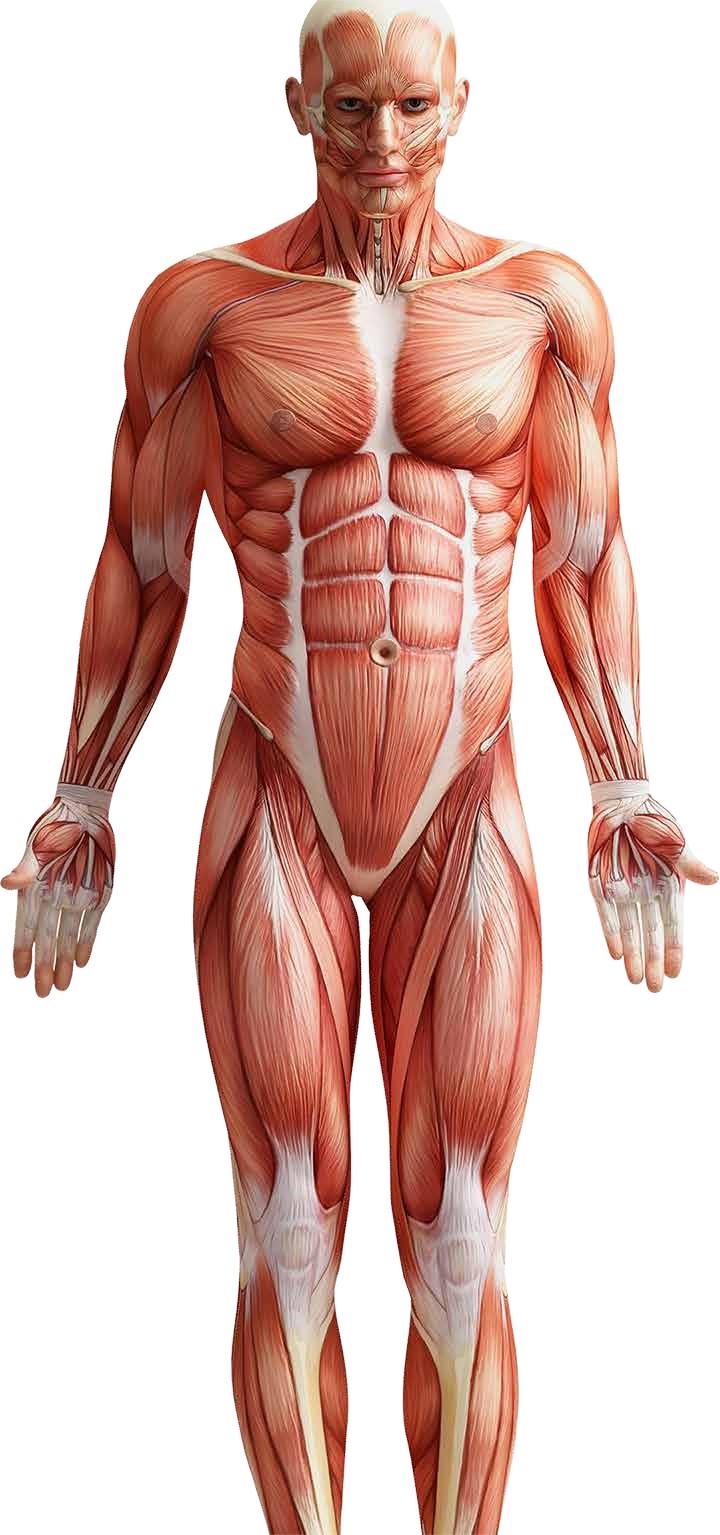
- Loss of Muscular Mass and Strength
- Reduction in Bone Density
- Loss of Skin Elasticity
- Hair Loss/Male Pattern
- Baldness
- Erectile Dysfunction
- Depression
- Fatigue
- Loss of Concentration or Memory
- Weight Gain
- Gynecomastia
- Hot Flashes
- Lower Sex Drive
- Urinary Problems
- Sleep Problems
- Irritability
- Night Sweats
- Hypogonadism
- Adrenal Fatigue
- Thyroid Health
There is a syndrome called Irritable Male Syndrome, or IMS, that’s caused by low testosterone. It is not just having a low libido. This syndrome includes emotional withdrawal, lack of motivation, aggression, personality changes, and anxiety. Irritable Man Syndrome can also present in self-destructive activities including gambling, alcoholism and workaholism.
Sound like you? Low testosterone affects over 13.8 million men in the US. Many of these men are in their 30s and even 20s due to hypogonadism.
Low T effects go beyond sex drive and mood. Testosterone deficiency increases the risk for cardiovascular disease, type 2 diabetes, and bone fractures. Low testosterone increases mortality risk.
800 men were followed for 50 years and the men with the lowest testosterone levels had a 33% greater chance of death, from all causes, than the group with the highest testosterone levels. Another study showed that men with low testosterone had 88% higher mortality levels than men with normal testosterone.
Hormone Therapeutics aims to help people looking to improve and optimize their health through natural means or through the guidance of our physicians.
Don’t miss out our free weekly tips and news on Low T, hormone balancing, healthy living, nutrition and a lot more.
Want more? 
Sign up today and Get our ebook, ‘Naturally Increase Your Testosterone Levels’ absolutely FREE.
Wondering About Low T? Here are the Low Testosterone Symptoms You Should Know
Saleamp Design September 30th, 2016
Posted In: Low T Info
Tags: Adrenal Fatigue, Andropause, Baldness, depression, erectile dysfunction, fatigue, gynecomastia, Hair Loss/Male Pattern, Hot Flashes, hypogonadism, irritability, irritable male syndrome, Loss of Concentration or Memory, Loss of Muscular Mass and Strength, Loss of Skin Elasticity, low t, low testosterone, low testosterone symptoms, Lower Sex Drive, male sexuality, Night Sweats, Reduction in Bone Density, Sleep Problems, testosterone deficiency, Thyroid Health, Urinary Problems, weight gain
Revealed: Testosterone Therapy May Enhance Sexual Drive and Energy Levels
 In a major new study published in the New England Journal of Medicine, testosterone therapy was found to improve physical ability and mood as well as sexual function. The study was a collaboration of researchers from 12 medical centers spanning the United States.
In a major new study published in the New England Journal of Medicine, testosterone therapy was found to improve physical ability and mood as well as sexual function. The study was a collaboration of researchers from 12 medical centers spanning the United States.
Mark E. Molitch, MD, an endocrinologist, was one of the authors of the study. Dr. Molitch is the Martha Leland Sherwin professor in medicine-endocrinology at the Northwestern University Feinberg School of Medicine.
“In recent years, talk about low testosterone and its treatments have become part of the public discussion,” explained Molitch. “Yet questions have always lingered about the treatment’s effectiveness and safety. I believe the results of this large, nationwide study will provide doctors and patients answers and guidance they’ve been looking for.”
Link between Testosterone, Mood, Libido and Physical Health
The team’s purpose was to determine the link, if any, between testosterone levels and the mood, libido, and physical ability of men over the age of 65. It is a well-established fact that a man’s testosterone levels and production decrease as he ages. Many men also experience lowered sex drive and energy levels as they become older, tiring and fatiguing more easily. For the first time, low testosterone has been established as the cause of these symptoms.
Testosterone Therapy Study Grant
Previously, the Institute for Men reported that there was insufficient evidence of testosterone therapy’s beneficial effects, if any. A grant from the National Institute on Aging and National Institutes of Health funded the new study to determine low testosterone could be the cause of what many consider the normal effects of aging.
Health Study on Testosterone Therapy
The subjects of the study were 790 men, all of whom were over the age of 65 and tested for low blood testosterone, as well as suffering from decreased sexual desire and physical function. Some participants in the study were given testosterone treatments in the form of a gel to apply directly to the skin. The medication increased the subjects’ testosterone levels to the normal range for men aged 19-40. The treatments and study of their effects lasted for over a year.
The study participants who received the testosterone treatments did not report increased energy, but their mood, libido, and physical function did improve. By measuring the distance walked in six minutes, the researchers were able to determine a small increase in the physical abilities of men in the study. There was also a decrease in symptoms of depression, such as feelings of sadness and listlessness.
“Men in the study experienced an increased sexual desire and small improvements in their mood and physical function,” explained Molitch. “Importantly, there was no evidence of an increase in heart or other cardiovascular issues in those who received testosterone compared to a placebo. And we monitored the men in this study for at least a year after receiving treatment.”
The study is expected to lead to further research in the potential applications of testosterone therapy in treating many of the problems that come with age. By firmly showing the link between low testosterone and decreased sexual activity, mood, and physical capabilities, the door is open to developing treatments for these common ailments.
Revealed: Testosterone Therapy May Enhance Sexual Drive and Energy Levels
Saleamp Design April 26th, 2016
Posted In: Testosterone Therapy
Tags: depression, endocrinology, fatigue, libido, low t, low testosterone, mood, sadness, sex drive, testosterone, testosterone therapy
Linking Erectile Dysfunction and Low Testosterone
 Erectile dysfunction is a common problem that affects many men. This being said, it is important to explore its causes and how it can be addressed. Because of testosterone’s prominence in men’s sexual function, it has been explored as a determining factor in erectile dysfunction. The following study describes how erectile dysfunction and low libido may be related to available testosterone in the body. It also examines how supplementing this testosterone deficiency may provide a better for you.
Erectile dysfunction is a common problem that affects many men. This being said, it is important to explore its causes and how it can be addressed. Because of testosterone’s prominence in men’s sexual function, it has been explored as a determining factor in erectile dysfunction. The following study describes how erectile dysfunction and low libido may be related to available testosterone in the body. It also examines how supplementing this testosterone deficiency may provide a better for you.
Different Types of Testosterone for Erectile Dysfunction
Many do not know that there are different types of testosterone in the body and that it is important to take note of their individual levels within a person’s system. The testosterone level measured when men go to the doctor is typically limited only to Total Testosterone. Patients only get the sum of unbound and bound testosterone present in the patient’s system.
The problem with this that the total amount of testosterone measured is not always fully available for use. Because of the presence of bound and unbound testosterone in the system, the Total Testosterone measurement for a person may not equal the precise amount of testosterone he is actually able to utilize. This is called Free Testosterone.
This is because bound and unbound testosterone are indicators of whether or not a testosterone can be immediately used by the body this Free Testosterone is a more important measure. A bound testosterone is one attached to proteins that need prior removal before it can be used, thereby needing some effort to be utilized. One of the proteins that binds to testosterones is albumin. While albumin does attach to testosterones, it is easily removed by the body when the testosterone is needed.
However, there are also particularly stubborn binding proteins that cannot be removed from the testosterone, thus rendering it unusable. An example of this is the Sex hormone binding globulin, or SBHG. Once SBHG attaches to your testosterone, it becomes unusable due to the difficulty of separating the protein from the testosterone, limiting the amount of available testosterone in the body.
The differences in functions and availability of these kinds of testosterone highlight the need to test for different types of testosterone. In studying testosterone levels in the system, it’s important to take into account the level of total testosterone, bio-available testosterone and free testosterone, along with the prevalence of SBHG proteins in the patients.
Free testosterone refers to unbound testosterones which are readily available to the body and thus, can be used with minimal effort. Bio-available testosterone, on the other hand, corresponds to both the free testosterones and testosterones bound to easily removed proteins such as albumin. SBHG limits the amount of Bio-available testosterone, giving a skewed amount of usable testosterone when analyzing the total count.
Erectile dysfunction’s relationship to your testosterone levels
Because of testosterone’s role as a primary sex hormone that establishes male traits and sex drive, research has been made to explore how testosterone levels and erectile function influence each other.
According to the study, there exists a proportional correlation between testosterone levels and erectile function, linking higher levels of the hormone with an increased sex drive and better erections. In addition to this, it also established that low testosterone levels was consistently present in cases of erectile dysfunction, and that low presence of the hormone may hamper erectile dysfunction medications such as Viagra from working properly.
Ultimately, the study concluded that a low amount of free testosterone coupled with high levels of SHBG posed the highest risk for erectile dysfunction in men, emphasizing the importance of monitoring testosterone levels when addressing the problem. Taking from the study, it goes that while there are many factors that can contribute to erectile function, it is useful to check testosterone levels because it was seen as a consistent influencing factor for erectile dysfunction as based on the data.
Because of testosterone’s effect on erectile dysfunction, aging men who are experiencing its symptoms are advised to first take a testosterone blood test that can measure the amount of total testosterone, free-testosterone and SHBG in their system. Because ultimately, it is free testosterone that determines the ready supply of the hormone in men, testing total testosterone may not provide sufficient information regarding one’s actual hormone levels. By testing all levels of testosterone, doctors may be able to determine if it is this deficit in available testosterone that hampers proper erectile function and sexual performance, providing the patient with better options of addressing the problem.
Hormone Therapeutics can help you learn more about testosterone
With the emergence of treatments for low testosterone levels today, you don’t have to bear its consequences anymore. This is why we have so many wives reaching out to us as well to find help for their loved one. Hormone Therapeutics can help you determine if low testosterone that is causing your sexual problems and provide testosterone replacement therapy, to remedy your concerns. We can treat with testosterone therapy, and/or erectile dysfunction treatments.
If you want to learn more about how to monitor your testosterone levels or fix low testosterone concentration and its consequences, our company can help you clear up your reservations. Give us a call and we’ll be happy to assist you as you take your first step towards improving your quality of life.
Linking Erectile Dysfunction and Low Testosterone
Saleamp Design April 5th, 2016
Posted In: Low T Info
Tags: albumin, Cialis, depression, ED, erectile dysfunction, erection, fatigue, free testosterone, impotence, libido, low libido, low t, low testosterone, sex, sexual function, SHGB, testosterone, Total Testosterone, Viagra
DHEA Benefits and Frontiers
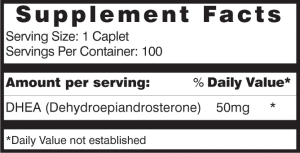 Dehydroepiandrosterone (DHEA) is a naturally occurring hormone produced in the body. Secreted by the adrenal glands, it is precursor to other hormones and is transformed by the body into specific hormones once it reaches the target tissue. As a prohormone, most of it effects are related to its end products as opposed to DHEA itself.
Dehydroepiandrosterone (DHEA) is a naturally occurring hormone produced in the body. Secreted by the adrenal glands, it is precursor to other hormones and is transformed by the body into specific hormones once it reaches the target tissue. As a prohormone, most of it effects are related to its end products as opposed to DHEA itself.
DHEA is gaining traction as an anti-aging supplement. It is also being explored as a treatment for several of the health conditions associated with aging.
DHEA and its effects
DHEA is often touted as a “youth restoring” hormone because of its reputation for slowing down the age process, improving general energy levels and cognitive skills. Because of this, many see it as a solution to regulate the side effects of aging and hormone depletion.
DHEA supplementation has shown an increase in energy, cognitive concentration, greater muscle mass/retention and slowing down the progression of Alzheimer disease. DHEA has been shown to have an influence on erectile dysfunction and lack of sex drive. In addition, Men with low DHEA more often experience depression as well as higher risks for overall mortality, including heart failure and cardiovascular threats.
DHEA Decline with Age
Unfortunately, DHEA production declines as its importance increases. DHEA production reaches its highest point during the 20s, but as one grows older, the body’s DHEA production decreases, leaving as little as 20% of the healthy output by the time one reaches 70.
Since it is a precursor to other hormones, this decline leads to a corresponding effect in other hormones as well. Estrogen and testosterone synthesis, in particular, wane once the DHEA levels decrease. This brings forth several consequences for both sexes. In men, specifically, age-related DHEA decrease leads to a decline in testosterone secretion. This decline is compounded because of the larger role DHEA plays in the production of testosterone as we age.
DHEA Supplements and their Effects
From trials, DHEA supplements have been shown to increase muscle mass, strength and physical well-being in general. In addition, tests of increased concentration, in men and women, have been shown to improve sexual potency and mood, with women experiencing less menopausal symptoms after taking supplements. Overall, DHEA has been seen as an anti-aging supplement, providing bone and muscle strength, better moods and immune system and increased memory.
When tested on patients with diabetes and neurological disorders, DHEA was not seen to improve erectile function and potency in patients. It has also been shown to exhibit minimal side effects such as mild acne, swollen ankles and increased facial hair in some women.
The effect of long term treatment on cardiovascular conditions and hormone-dependent tumors has not yet been studied, or have yielded conclusive results.
DHEA Frontiers
DHEA supplements for anti-aging purposes are currently gaining traction. As a precursory hormone, it is seen by many as a way to regulate hormone balance within the body. In addition, DHEA’s reputation in increased bone and muscle strength, as well as energy, has many physicians exploring DHEA supplements and its effect on bone growth, depression, and other mood and cognitive disorders.
Hormone Therapeutics
Hormone Therapeutics specializes in endocrine and hormone-related treatment, and is committed to finding the best treatment for your well-being. If you’re curious about how DHEA supplements can improve you and your life, Hormone Therapeutics can provide the answers for you. Call us today!
Do You Need Help?
Hormone Therapeutics is the leading national company assisting men who want to get their lives back through Hormone Replacement and Testosterone Replacement therapy. Our local physicians are ready to treat you anywhere in the entire country. Hormone Therapeutics is pioneering an easier, cost efficient and more private way for you to work with our clinical advisors and physicians from the privacy of your home or office after your local physical exam confirms you have one of the symptoms of Low T.
Contact us today and our clinical advisors will work with you on a hormone therapy program that may include prescribed hormones, exercise, nutrition and sleep programs to reclaim your vitality.
DHEA Benefits and Frontiers
Saleamp Design April 1st, 2016
Posted In: Health & Wellness
Tags: brain, brain fog, cardiovascular issues, Cialis, Dehydroepiandrosterone, depression, DHEA, ED, energy, erectile dysfunction, fatigue, hair loss, happiness, heart attack, low t, low testosterone, memory, muscle loss, muscle mass, sadness, sex drive, sexual function, stroke, supplements, testosterone, Viagra
Here’s How Sermorelin Can Help Increase Your Brain Performance
We all age. It is inevitable. It is part of life. Sermorelin can help.
Yet most of us wish to keep a highest quality of life as we age – a life where we can still keep as much of the strength, energy and appearance that we enjoy in our youth. Likewise, we hope to be spared the damage that comes with degenerative diseases. Hormones highly affects our vitality and longevity – an important key to our ability to look and feel young.
As we age, hormone levels change and evolve. The energy-producing, fat-burning hormones fall while the energy-depleting, fat-storing hormones will inversely rise. Such changes makes us feel and look older.
Sometimes, hormones severely drops into a deficiency, below the level that can maintain the best health outcomes. In this situation, hormone optimization– through exercise, sleep, diet, lifestyle changes and hormone therapy – can be very beneficial to one.
Human growth hormone is one of the most common, and important, body hormones that usually drops to deficiency level.
What is Adult Human Growth Hormone Deficiency?
Adult growth hormone deficiency (AGHD) is being recognized increasingly. It has been associated with cardiovascular, metabolic, neuromuscular, neuropsychiatric-cognitive and skeletal abnormalities.
Symptoms include:
- Changes in memory, processing speed and attention
- Lack of well-being
- Depression
- Anxiety
- Social isolation
- Fatigue
- Lack of strength
- Fibromyalgia syndrome
- Neuromuscular dysfunction
- Decreased muscle mass
- Decreased bone density
- Impaired cardiac function
- Decreased insulin sensitivity
- Increased buildup of abnormal fat masses in the blood vessel walls
- Increased low-density lipoprotein or bad cholesterol
- Decreased sweating and thermoregulation
Most of these symptoms can be reversed through growth hormone therapy. Adult Growth Hormone Deficiency must be diagnosed before a physician can legally prescribe HGH to a patient.
How Sermorelin Helps Adult Growth Hormone Deficiency
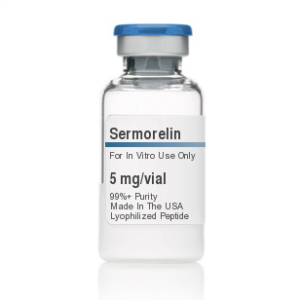
Sermorelin Acetate (GRF 1-29) is a bio-identical growth hormone-releasing hormone that can be used to safely stimulate the production of growth hormone from the pituitary gland. An FDA-approved medication, it has been genetically engineered to increase the levels of growth hormone and reverse the effects of AGHD.
Sermorelin acetate was first developed in the 1970s, and was considered to be the shortest, yet fully functional piece of GHRH, that has been used to test for human growth hormone secretion.
Sermorelin has been used as a hormone replacement therapy for testosterone in men and an anti-aging product. Unlike human growth hormone, Sermorelin is a secretagogue, which means it stimulate the gland to secrete hormone.
How Sermorelin Help Improve Your Brain Function
The effect of growth hormone-releasing hormone is better observed among patients who secrete little to zero growth hormone due to pituitary tumors or the total removal of the gland where human growth hormone is produced.
Regardless of the age, all patients manifest similar psychological effects due to growth hormone deficiency. Symptoms include mood swings, anxiety, increased social isolation, decreased work capacity and depression (Ronald Klatz, Robert Goldman, Stopping the Clock, 2003).
GHRH has also been found to have positive effect on patients with mild cognitive impairment. In a study by the University of Washington School of Medicine (2013), thirty adults (17 diagnosed with mild cognitive impairment) ranging in age between 55 and 87 years participated in a study on the neurochemical effects of GHRH.
After 20 weeks of GHRH administration, results showed an increase in gamma-Aminobutyric acid (GABA) and N-acetylaspartylglutamate (NAAG), and a decrease in myo-inositol (MI), which are positive indicators that may help reverse age-related decline and improve cognitive function.
Do You Need Help?
Hormone Therapeutics is the leading national company assisting men who want to get their lives back through Hormone Replacement and Testosterone Replacement therapy. Our local physicians are ready to treat you anywhere in the entire country. Hormone Therapeutics is pioneering an easier, cost efficient and more private way for you to work with our clinical advisors and physicians from the privacy of your home or office after your local physical exam confirms you have one of the symptoms of Low T.
Contact us today and our clinical advisors will work with you on a hormone therapy program that may include prescribed hormones, exercise, nutrition and sleep programs to reclaim your vitality.
Here’s How Sermorelin Can Help Increase Your Brain Performance
Saleamp Design March 20th, 2016
Posted In: Health & Wellness
Tags: anti-aging product, brain function, cognitive skills, depression, fatigue, GHRH, growth hormone therapy, growth hormone-releasing hormone, HGH, hormone replacement therapy, hormone therapy, human growth hormone, memory, Sermorelin
What are the indicators that someone needs Testosterone Replacement?
What are your Total Testosterone and Free Testosterone levels? Do they fall within the norms, are low or high, as described in our other blogs and sections?
What are the indicators that someone needs Testosterone Replacement?
Saleamp Design March 17th, 2015
Posted In: Low T Info, Uncategorized
Tags: androgen deficiency, erectile dysfunction, fatigue, Free Testosterone levels, Hormone Replacement physician, hypogonadism, irritability, low libido, Low T symptoms, low testosterone levels, symptoms of low testosterone, testosterone replacement, Testosterone replacement therapy, testosterone therapy, Total Testosterone
What are Normal Testosterone Levels?
Treating a patient solely based on testing levels is not a proper way to evaluate and treat a patient, however, understanding the normal ranges for a patient is an important piece to the puzzle. What are Normal Testosterone Levels? The normal level of Total Testosterone is often described as between 350-1200 ng/dl (270-1070 ng/dl in another study), however, this range is not associated with age and everyone agrees that men have peak testosterone levels in their early twenties and then slowly decline at 1-2% per year after that. Normal values will vary by lab as will the reference range. In the US, ranges are seen in nanograms per deciliter.
What are Normal Testosterone Levels?
Saleamp Design March 16th, 2015
Posted In: Health & Wellness, Low T Info, Uncategorized
Tags: androgen deficiency, erectile dysfunction, fatigue, Free Testosterone levels, Hormone Replacement physician, hypogonadism, irritability, low libido, Low T symptoms, low testosterone levels, symptoms of low testosterone, testosterone, Testosterone replacement therapy, Total Testosterone



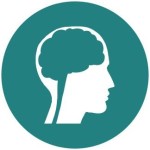 The Endocrine System
The Endocrine System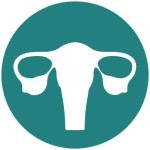 The Reproductive System
The Reproductive System Puberty
Puberty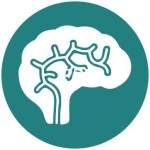 The Central Nervous System
The Central Nervous System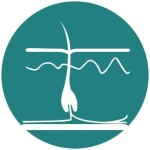 Skin and Hair
Skin and Hair Muscles, Fat, and the Skeleton
Muscles, Fat, and the Skeleton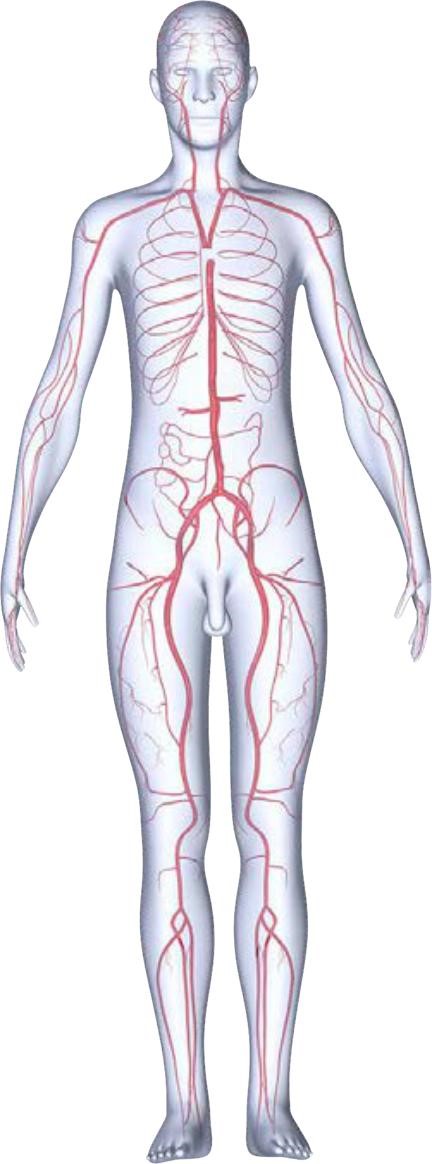 The Circulatory System
The Circulatory System